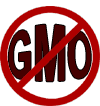Leaked World Trade Organization Ruling Shows That U.S. Misled the World on Biotech Foods "Victory"
Friends of the Earth
Press Release
February 28, 2006
WTO ruling does not prevent countries from restricting or banning GM foods
BRUSSELS (BELGIUM) / WASHINGTON DC (US) 28 February 2006 * Friends of the Earth International made available online today a confidential World Trade Organization ruling on the trade dispute on biotech, or genetically modified organisms(GMO) foods. [1]
The 1000-page report, which was distributed earlier this month only to the countries involved in the dispute, was leaked to Friends of the Earth, which published today February 28 a preliminary analysis in the briefing 'Looking behind the US spin'. [2]
The leaked report reveals that:
- despite claims of victory by the U.S. Administration and the biotechnology industry * widely reported in the media in February 2006 * the three countries that started the trade dispute against the European Union (U.S., Canada and Argentina) failed to win most of their arguments;
- the World Trade Organization (WTO) did not rule on two of the most important questions, namely whether GM foods are effectively the same as non-GMO foods and if they are safe.
"Once again, the Bush administration has tried to contradict reality," said Brent Blackwelder, president of Friends of the Earth * U.S. "The WTO ruling is not a victory for the biotech food giants. Countries around the world should continue to enforce tough legislation protecting their citizens and the environment from the risks of genetically modified crops."
According to Friends of the Earth International the WTO is not and should not be the appropriate body to deal with conflicts between trade rules and environmental protection since it considers only trade principles and has no particular competence in environmental or health issues.
According to the leaked WTO report ruling:
- Europe's 4-year moratorium on GM Organisms (GMOs) only broke trade rules because it caused "undue delay" in the approval of new GM foods. The WTO dismissed eight other complaints in relation to the moratorium, and did not recommend any further action, since the moratorium ended in 2004.
- There was also an "undue delay" in the EU's approval procedures for over 20 specified biotech products. However, eleven other claims of the complainants related to the product-specific EU measures were dismissed by the WTO Panel.
- Safeguard measures by EU member states broke trade rules only because the risk assessments used by the countries in question did not comply with the WTO requirements.
"This is the report that the WTO didn't want the public to see. It reveals that the big corporations that stand behind the WTO failed to get the big win they were hoping for. Biotech proponents needed a clear victory in this dispute to be able to push governments in the EU and the developing world to accept genetically modified food. They failed and now is the time to build a consensus that the WTO, with its business-only agenda, is the wrong place to decide on what people eat and how we protect our environment." said Adrian Bebb, GMO campaigner for Friends of the Earth Europe in Brussels.
Friends of the Earth Europe today launched an online campaign urging the public to call on their Governments to reject the WTO as a forum to decide on environmental trade disputes and to support the right of countries to ban GMOs.
- The Friends of the Earth preliminary analysis in the briefing 'Looking behind the US spin'

